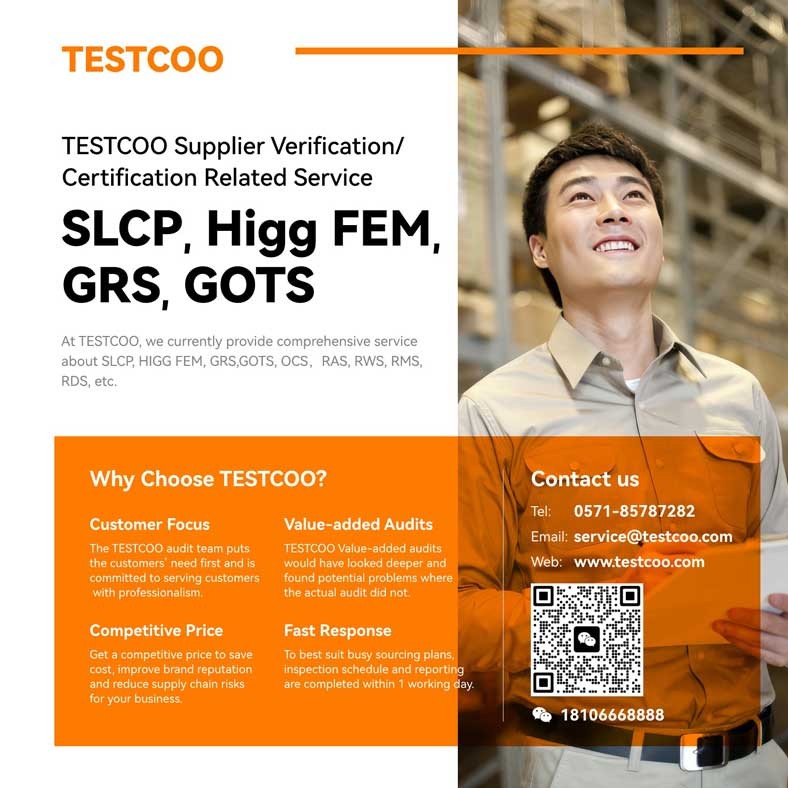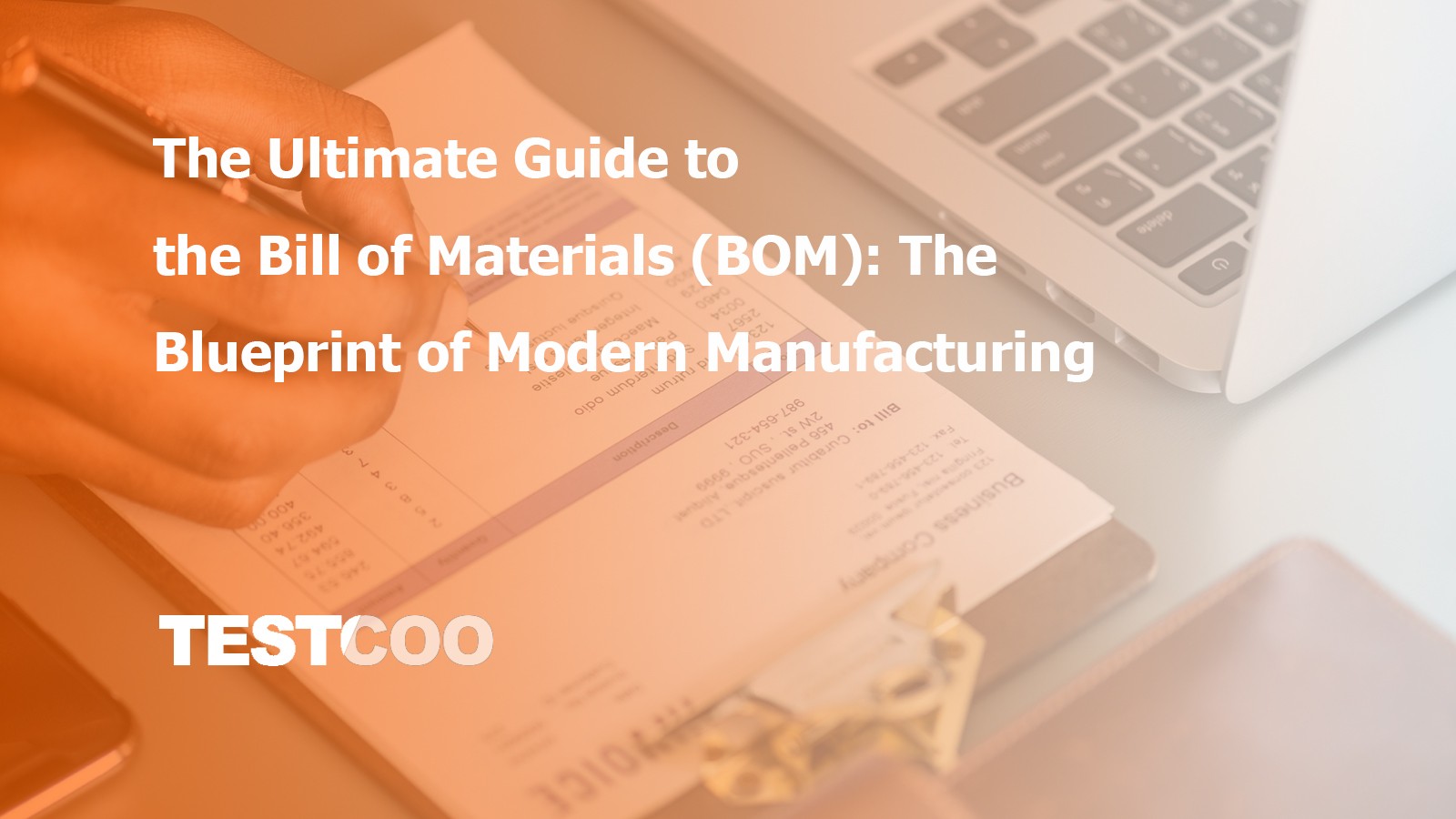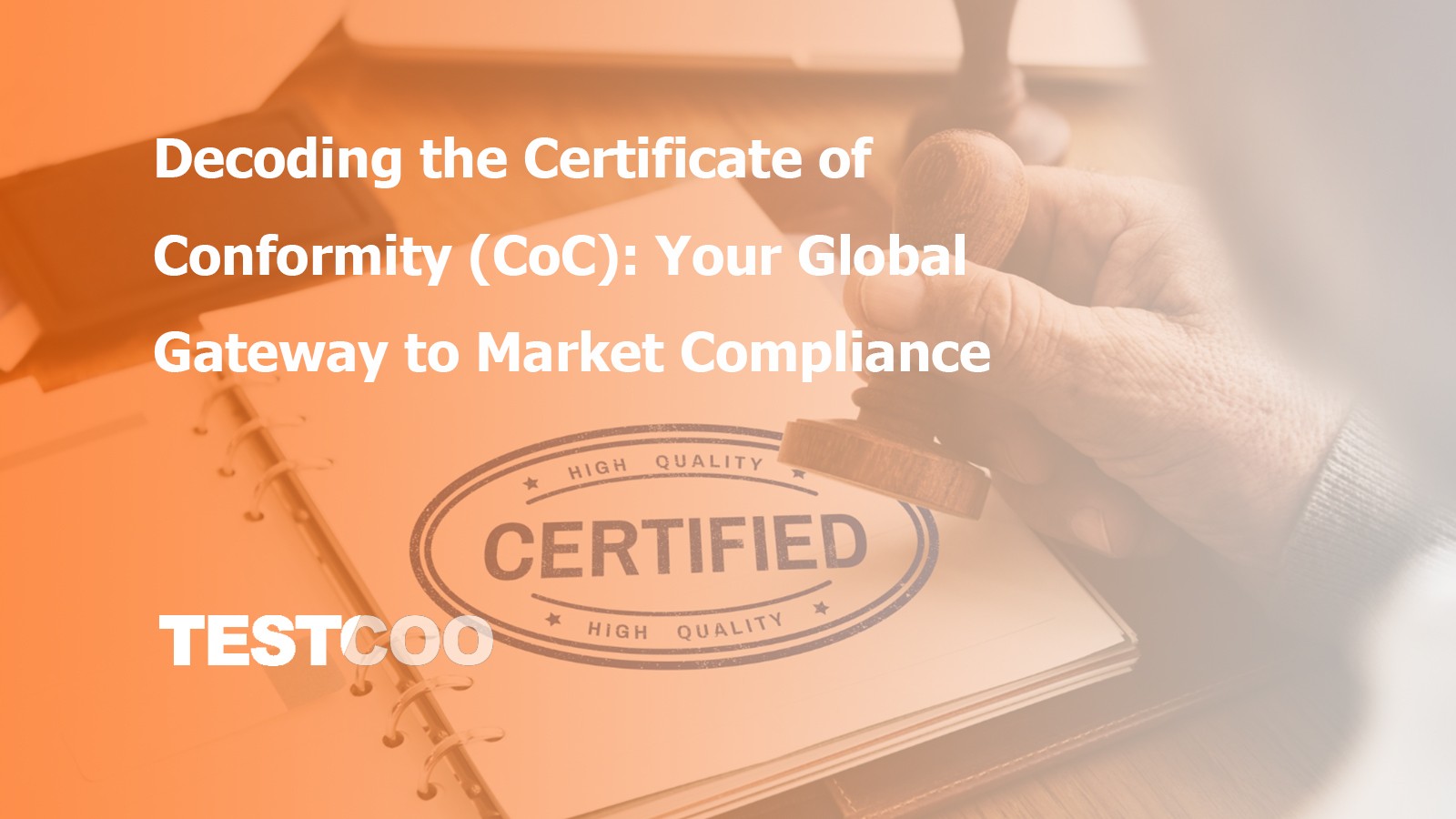TESTCOO Supplier Verification/Certification Service SLCP, Higg FEM, GRS, GOTS
At TESTCOO, we currently provide comprehensive service about SLCP, HIGG FEM, GRS, GOTS, OCS, RAS, RWS, RMS, RDS, etc.
The Social & Labor Convergence Program is a new initiative designed to reduce the number of social audits in facilities and provide credible social and labor data in apparel and footwear facilities by using a Converged Assessment Framework (CAF).
The SLCP data collection tool collects data on ten sections:
-Facility Profile
-Recruitment and Hiring
-Working Hours
-Wages and Benefits
-Employee Treatment
-Employee Involvement
-Health and Safety
-Termination
-Management Systems
-Above and Beyond
Higg FEM Verification
Higg FEM (The Higg Facility Environmental Module) is a sustainability assessment tool that developed by the Sustainable Apparel Coalition (SAC) to offer insights for manufacturers, brands, and retailers on the environmental performance of their individual facilities, empowering them to scale their sustainability improvements.
The Higg FEM measures environmental performance in seven aspects:
-Environmental Management Systems (EMS)
-Energy Use and Greenhouse Gas Emission
-Water Use
-Wastewater
-Emission to Air (if applicable)
-Waste Management
-Chemical Management
GRS Certification
GRS (The Global Recycled Standard) is an international, voluntary, full product standard that sets requirements for third-party certification of Recycled Content, chain of custody, social and environmental practices, and chemical restrictions.
The goal of the GRS is to increase use of Recycled materials in products and reduce/eliminate the harm caused by its production.
The Global Recycled Standard is intended for use with any product that contains at least 20% Recycled Material. Each stage of production is required to be certified, beginning at the recycling stage and ending at the last seller in the final business-to-business transaction.
GOTS (The Global Organic Textile Standard) is the worldwide leading textile processing standard for organic fiber. From the harvesting of the raw materials, environmentally and socially responsible manufacturing to labelling, textiles certified to GOTS provide a credible assurance to the consumer.
Many products can become GOTS certified, including yarns, fabrics, clothes, home textiles, mattresses, personal hygiene products, as well as food contact textiles and more (excluding leather products).
GOTS Requirements:
-Processors, Manufacturers, and Traders of GOTS Goods Certification and Auditing
-Material Input Requirements
-GOTS Chemical Input Management
-GOTS Environmental Management
-GOTS Human Rights and Social Compliance
-Technical Quality Management
OCS Certification
The Organic Content Standard (OCS) is an international, voluntary standard that sets requirements for third-party certification of certified organic input and chain of custody. The primary goal of the OCS is to increase organic agriculture production.
The OCS aims to deliver this goal through three key objectives:
• Provide the industry with a tool to verify the organically grown content of the products they purchase.
• Provide companies with a trusted tool to communicate organically grown content claims to the industry.
• Provide organic farmers with broad access to the global organic market for their products.
OCS certification applies to all supply chain sites of organically grown content: first processor, manufacturing, packaging and labeling, storage, handling, and shipping through the seller in the last business-to-business transaction.
RAS Certification
The Responsible Alpaca Standard (RAS) is an international, voluntary standard that addresses animal welfare in the alpaca supply chain and chain of custody of alpaca fiber material from certified farms to the final product.
The goals of the Responsible Alpaca Standard are to:
• Recognize the best practices of farmers;
• Ensure that alpaca fiber comes from farms with a progressive approach to managing their land, and from alpacas that have been treated responsibly;
• Create an industry benchmark that will drive improvements in animal care, land management, and social welfare where needed; and
• Provide a robust chain of custody system from farm to final product so that consumers are confident in the alpaca fiber in the products they choose is truly RAS.
RWS Certification
The Responsible Wool Standard (RWS) is an international, voluntary standard that addresses animal welfare in sheep farms and chain of custody of wool from certified farms to the final product.
The goals of the Responsible Wool Standard are to provide the industry with the best possible tool to:
• Recognize the best practices of farmers;
• Ensure that wool comes from farms with a progressive approach to managing their land, and from sheep that have been treated responsibly;
• Create an industry benchmark that will drive improvements in animal care and land management and social welfare where needed; and
• Provide a robust chain of custody system from farm to final product so that consumers are confident that the wool in the products they choose is truly RWS.
RWS certification applies to all supply chain sites of wool: from the farm, processing of wool, assembly of the final products, up to the seller in the last business-to-business transaction. After the farm level, certification is under the umbrella of Responsible Animal Fiber, which includes both the Responsible Wool Standard and the Responsible Mohair Standard.
RMS Certification
The Responsible Mohair Standard (RMS) is an international, voluntary standard that addresses animal welfare in goat farms and chain of custody of mohair from certified farms to the final product.
The goals of the Responsible Mohair Standard are to provide the industry with the best possible tool to:
• Recognize the best practices of farmers;
• Ensure that mohair comes from farms with a progressive approach to managing their land, and from angora goats that have been treated responsibly;
• Create an industry benchmark that will drive improvements in animal care and land management and social welfare where needed; and
• Provide a robust chain of custody system from farm to final product so that consumers are confident that the mohair in the products they choose is truly RMS.
RMS certification applies to all supply chain sites of mohair: from the farm, processing of mohair, assembly of the final products, up to the seller in the last business-to-business transaction. After the farm level, certification is under the umbrella of Responsible Animal Fiber, which includes both the Responsible Wool Standard and the Responsible Mohair Standard.
RDS Certification
The Responsible Down Standard (RDS) is an international, voluntary standard that addresses animal welfare in the duck and geese supply chain and chain of custody of down and feather material from certified farms to the final product.
The goals of the Responsible Down Standard are to:
• Ensure that down and feathers do not come from supply chains where animals have been subjected to any unnecessary harm.
• Reward and influence the down and feather industry to incentivize practices that respect the humane treatment of ducks and geese.
• Education and development of the supply chain in order to drive continuous improvement of best practices.
• Provide companies with a tool to know what is in their products, and to make accurate claims.
• Ensure strong chain of custody for certified materials as they move through the supply chain.
RDS certification applies to all supply chain sites of waterfowl down and feather material: from the hatchery (if in possession of hatchlings longer than 24 hours), farm, slaughter, processing of down or feather, assembly of the final products, up to the seller in the last business-to-business transaction.
Why Choose TESTCOO?
Customer Focus
The TESTCOO audit team puts the customers’ need first and is committed to serving customers with professionalism.
Competitive Price
Get a competitive price to save cost, improve brand reputation and reduce supply chain risks for your business.
Fast Response
To best suit busy sourcing plans, inspection schedule and reporting are completed within 1 working day.
Value-added Audits
TESTCOO Value-added audits would have looked deeper and found potential problems where the actual audit did not.
TESTCOO is a leading quality control service provider to industries worldwide. Partner with TESTCOO and gain confidence in your sustainable sourcing, brand and marketing claims.
CONTACT US
Tel: +86 571-85787282
E-mail: service@testcoo.com
Web: https://www.testcoo.com
We chat: 18106668888
Free Sample Report Performance Quality Control
Download a sample report to keep control of your supply chain!
Featured Articles
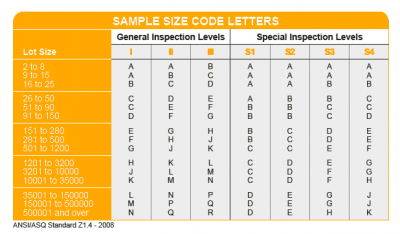 AQL Table | How to Read It
AQL Table | How to Read It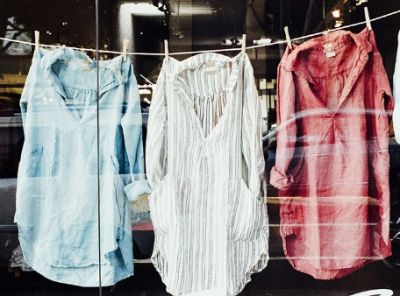 TOP 10 Common Defects in Garments Quality Inspection
TOP 10 Common Defects in Garments Quality Inspection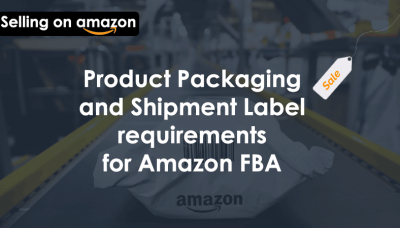 Product Packaging and Shipment Label requirements for Amazon FBA
Product Packaging and Shipment Label requirements for Amazon FBA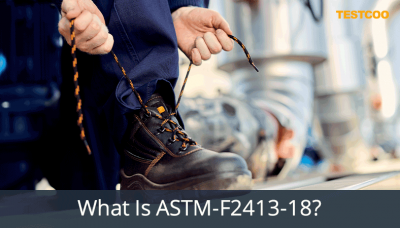 What Is ASTM-F2413-18? Protective Footwear Standard
What Is ASTM-F2413-18? Protective Footwear Standard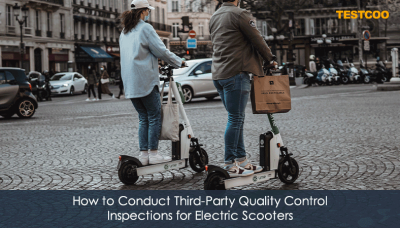 How to Conduct Third-Party Quality Control Inspections for Electric Scooters
How to Conduct Third-Party Quality Control Inspections for Electric Scooters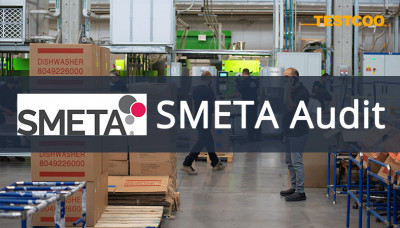 SMETA Audit-What is SMETA Audit?
SMETA Audit-What is SMETA Audit?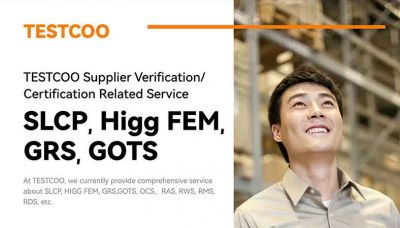 TESTCOO Supplier Verification/Certification Service SLCP, Higg FEM, GRS, GOTS
TESTCOO Supplier Verification/Certification Service SLCP, Higg FEM, GRS, GOTS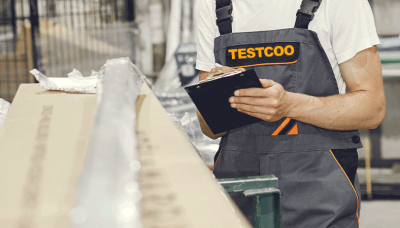 Quality Control Inspection Company in China
Quality Control Inspection Company in China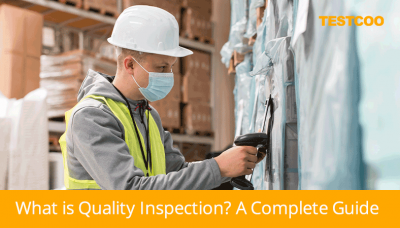 What is Quality Inspection? A Complete Guide
What is Quality Inspection? A Complete Guide Guidelines for Product Inspection in India
Guidelines for Product Inspection in India
Category
- Production Inspection Service
- Factory Audit
- Softline Inspection
- Hardline Inspection
- Electrics Inspection
- Certification
- Checklist
- Manufacturers
- Quality Assurance Basics
- Products Recall
- AQL
- Guidence and Standard
- News
- Supplier Management
- Amazon
- Protective Equipment
- e-commerce quality control
- Indian Manufacturing
- Soft Goods Quality Control
- Supply Chain Management
- Supply Chain Resilience
- E-Commerce Quality Control
- ISO 2859
- Supply Chain Optimization
- Garment Industry
- Higg Index
